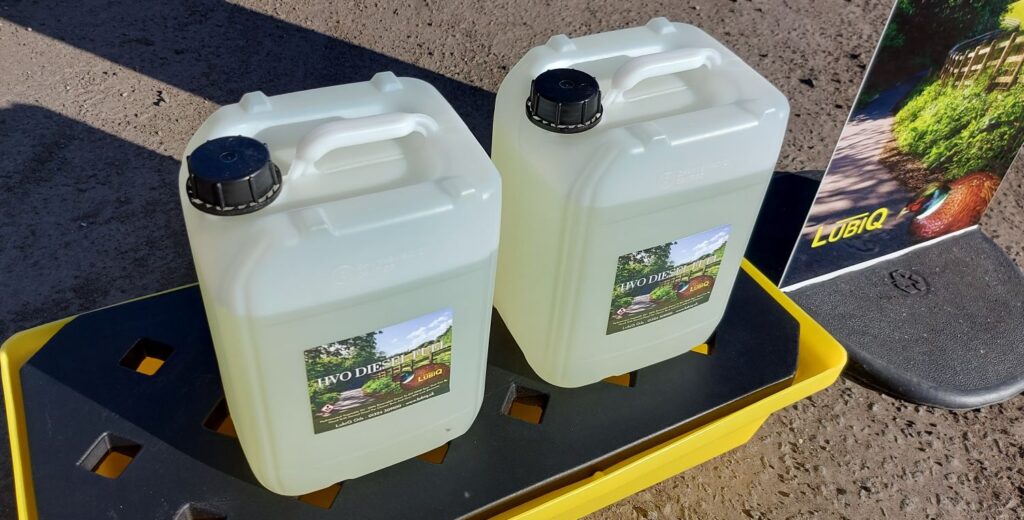
Premium Diesel
The best true premium diesel is HVO renewable diesel, or to give it its full name hydrotreated vegetable oil. It is often called green diesel and is an advanced second-generation synthetic fuel but, in a way, it is best to think of HVO as ‘racing diesel’.
Here we explore what there is to prove this claim in simple terms.
Diesel Fuel History
Although the very first compression ignition engines used a plant related oil as fuel, the past century has seen nearly all diesel coming from the fractional distillation of crude petroleum.

This fossil diesel, produced in refineries, is only one of numerous ‘fractions’ that come from crude oil varying as widely as LPG gases down to HGO marine bunker fuel and tar-like bitumen/creosote.
This is undoubtedly an impressive use of fossil resources but comes with natural variabilities and shortcomings, it is harnessing a natural product, not designing a premium diesel from the ground up which is what scientists have done with HVO.
Mainstream diesel has variable molecule lengths, the characteristic sooty blue smoke and aroma from sulphur content, and sadly, in a well-meaning attempt to make it greener, it frequently contains up to 7.25% FAME (fatty acid methyl esters) biodiesel.

This combination of less-than-ideal base fuel plus a sub-prime biodiesel product is decreasing cold weather performance and leading to an alarming increase in choked fuel filters and blocked DPF particulate filters (especially for frequent short journeys like taxis).
You can mix HVO with normal diesel fuel making it a practical and quick way to decarbonise without EV’s.

The HVO Difference
Firstly, HVO is a synthetic premium renewable diesel fuel, meaning simply that it is man made and the process is different to biodiesel, with superior results.
Using a process of reacting and cracking with hydrogen, this paraffinic fuel enjoys same length molecule chains, no oxygen in it to grow horrors like algae or diesel bug in tanks, and an incredibly clean burn with far less smoke, soot, and smell.

Having a high cetane number of 70 means an engine starts quickly as combustion is assisted and smoother running is noticeable quickly once you are using HVO. The great thing is that because it is miscible with white diesel and any vehicle can run off a combination of the two, it is just so easy to use!
Using HVO reduces nitrous oxides, AdBlue usage, and almost renders DPF filters unneeded but that is not quite the whole picture because another very interesting aspect is:
What HVO Is Made From
HVO is astonishingly green and eco-friendly. This is because it is produced entirely from waste and not just one of the fractions of crude oil or from virgin foodstuffs/seeds/palm oil.
HVO renewable diesel is made from used cooking oil, animal fats, and fish waste and thus is a fossil-free diesel that offers a net greenhouse gas emissions cut of as much as 90%!
When using HVO you are saving 2.2kg of net carbon emissions per litre burnt and being very kind to your engine, injectors, and fuel filters with longer term cost savings on cars, plant, generators, or trucks.
Any Downsides?
HVO fuel is more expensive than standard mineral diesel, and very few petrol forecourts have renewable premium diesel available at the pump.
One solution is to use our HVO delivery service where we supply 10 or 20 litre jerrycans, diesel dispenser tanks, fuel pallets, or IBC tanks
Used heavily by truck fleets and local authorities, HVO users are drastically reducing emissions and enjoying the benefits that this diesel brings.
This does not come from a bit of extra detergent or expensive fuel treatment additives, but from an entirely new synthetic fuel, HVO, which wins as the best premium diesel on the market today
